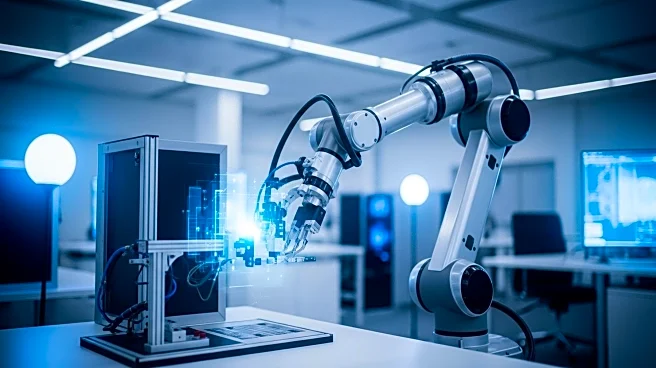What's Happening?
Amazon is reportedly planning to cut up to 15% of roles in its human resources department as part of a fresh round of layoffs. This decision is part of Amazon's broader strategy to reduce employee costs
while making significant investments in artificial intelligence and infrastructure. The company plans to spend approximately $100 billion in capital expenditure in 2025 to build AI data centers and cloud computing facilities. These facilities are intended for both internal use and sale to external customers. From late 2022 to 2023, Amazon CEO Andy Jassy oversaw about 27,000 job cuts, primarily affecting corporate roles, as the company joined other tech giants like Meta and Google in widespread downsizing.
Why It's Important?
The reduction in Amazon's HR workforce highlights the company's shift towards AI-driven transformation. CEO Andy Jassy has emphasized the importance of embracing AI, suggesting that those who help build and deploy AI tools will be well-positioned to reinvent the company. This move reflects a broader trend in the tech industry where companies are increasingly investing in AI to enhance efficiency and reduce workforce costs. While Amazon is cutting jobs, it also plans to hire 250,000 seasonal workers for its peak holiday season, indicating a strategic focus on temporary roles to manage fluctuating demand.
What's Next?
Amazon's focus on AI and infrastructure development suggests potential changes in its operational strategies and workforce composition. As the company invests heavily in AI, it may continue to streamline its workforce, prioritizing roles that support AI initiatives. The seasonal hiring plan indicates Amazon's preparation for increased demand during the holiday season, which could lead to further adjustments in its employment strategies. Stakeholders, including employees and investors, will likely monitor these developments closely to assess the impact on Amazon's long-term growth and operational efficiency.
Beyond the Headlines
The shift towards AI and infrastructure investment raises ethical and cultural questions about the future of work at Amazon and similar companies. As AI becomes more integrated into business operations, there may be concerns about job displacement and the need for workforce retraining. Additionally, the emphasis on temporary roles during peak seasons could affect job stability and employee satisfaction. These factors may influence public perception and regulatory scrutiny regarding employment practices in the tech industry.











